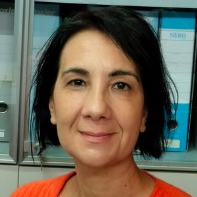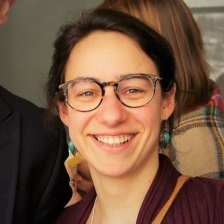10th Anniversary of Processes—Recent Advances in Process Control and Monitoring
A special issue of Processes (ISSN 2227-9717). This special issue belongs to the section "Process Control and Monitoring".
Deadline for manuscript submissions: 20 July 2024 | Viewed by 4320
Special Issue Editors
Interests: process control; state estimation; process modelling and simulation; digital twins; model predictive control; stochastic systems
Interests: process design and optimization; process synthesis; process simulation; biofuels; natural product recovery and purification
Special Issues, Collections and Topics in MDPI journals
Interests: process control; process simulation and optimization; system identification; model predictive control; performance monitoring; chemical engineering
Interests: model-based design and optimization; computational fluid dynamics (CFD); population balance modelling (PBM)
Special Issues, Collections and Topics in MDPI journals
Interests: mathematical modelling; hybrid models; process control; potable water; water distribution networks; wastewater treatment
Special Issues, Collections and Topics in MDPI journals
Special Issue Information
Dear Colleagues,
Process control and monitoring systems have gained paramount importance in industrial processes since they guarantee efficient and effective management. With the growing complexity of industrial processes, there is a need for advanced control and monitoring techniques that can ensure the quality, safety, and reliability of processes. In this period of rapid technological advancements and digital transformation, process control and monitoring systems are critical to achieve operational excellence meeting the demands of customers and stakeholders. These motivations are particularly relevant in the context of the green transition, where process control is a fundamental tool that is used for achieving sustainable production goals. The design of green processes is expected to be challenged due to different factors such as variability in the feedstock used and limitations in operative conditions. As a consequence, it is valuable and important to investigate interactions among design, control, and process operability which are necessary in order to improve the dynamic performance of chemical processes during the early design stage.
This Special Issue aims to collect up-to-date and high-quality studies in the area of process control and process monitoring. Case studies and new applications in the context of green transitions are welcomed together with simultaneous process optimization and control for the recovery of high-added-value compounds. Contributions are encouraged to quantify how the proposed solution contributed to reducing wastes, emissions, and carbon footprints, and more generally how they positively contribute to the sustainability of the process.
Topics of interest include, but are not limited to, the following:
- Advanced control algorithms;
- Closed-loop performance monitoring;
- Robust control;
- Optimization-based control;
- Plant-wide control;
- Controllability analysis;
- Energy saving and waste reduction in production processes through control design;
- State estimation;
- Data-driven approaches for process control and monitoring.
Dr. Stefania Tronci
Dr. Massimiliano Errico
Dr. Riccardo Bacci Di Capaci
Prof. Dr. Ingmar Nopens
Dr. Elena Torfs
Dr. Michael Short
Guest Editors
Manuscript Submission Information
Manuscripts should be submitted online at www.mdpi.com by registering and logging in to this website. Once you are registered, click here to go to the submission form. Manuscripts can be submitted until the deadline. All submissions that pass pre-check are peer-reviewed. Accepted papers will be published continuously in the journal (as soon as accepted) and will be listed together on the special issue website. Research articles, review articles as well as short communications are invited. For planned papers, a title and short abstract (about 100 words) can be sent to the Editorial Office for announcement on this website.
Submitted manuscripts should not have been published previously, nor be under consideration for publication elsewhere (except conference proceedings papers). All manuscripts are thoroughly refereed through a single-blind peer-review process. A guide for authors and other relevant information for submission of manuscripts is available on the Instructions for Authors page. Processes is an international peer-reviewed open access monthly journal published by MDPI.
Please visit the Instructions for Authors page before submitting a manuscript. The Article Processing Charge (APC) for publication in this open access journal is 2400 CHF (Swiss Francs). Submitted papers should be well formatted and use good English. Authors may use MDPI's English editing service prior to publication or during author revisions.










